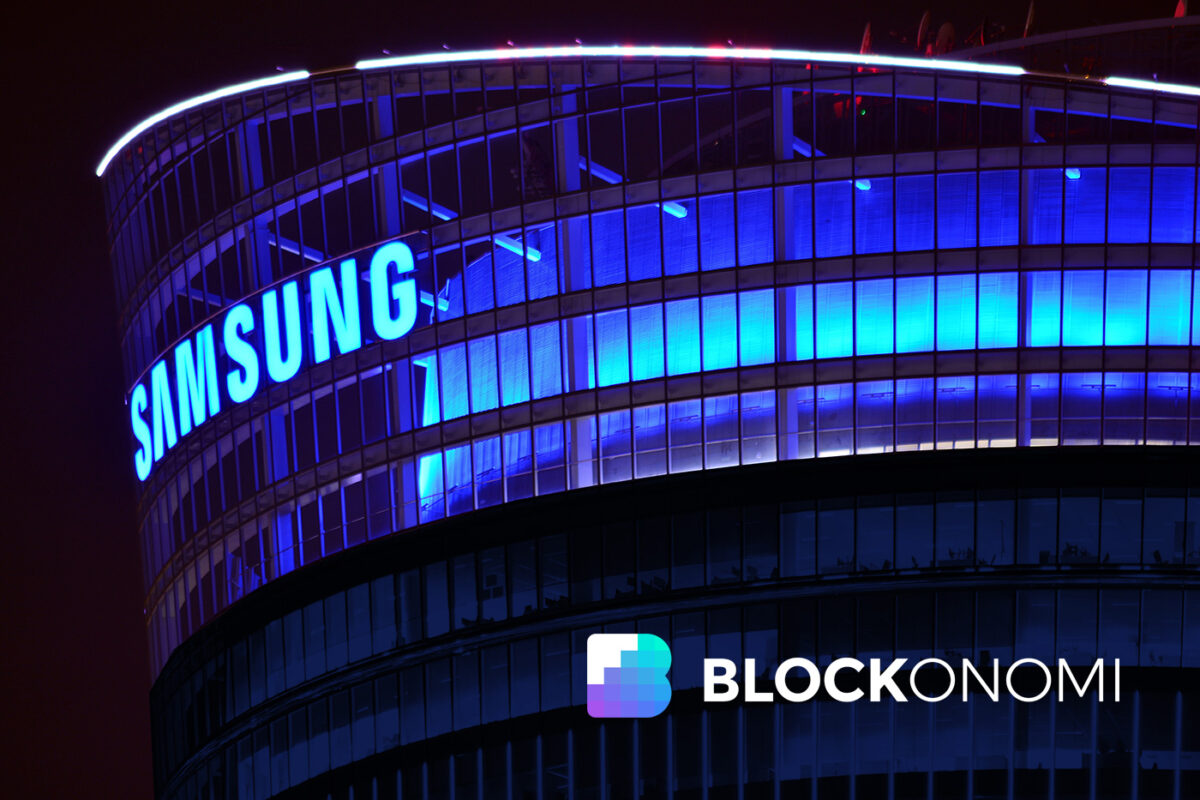
A Korea-based news outlet reported on Monday that seven securities companies in South Korea are seeking approval to enter the crypto ecosystem with trading platforms in 2023.
Two notable names on the list are Samsung Securities, a financial-focused subsidiary of Samsung Group, and Mirae Asset Securities, Korea’s largest investment banking and stock brokerage firm.
Samsung Goes Crypto
Samsung Securities, among others, has filed paperwork to launch a cryptocurrency exchange in the first half of next year.
“Currently, discussions necessary for the establishment are being finalized,” said a spokesperson from one of the companies.
While sharing a similar goal of a virtual asset exchange establishment, the two firms take different approaches.
Mirae Asset Securities is establishing a subsidiary under Mirae Asset Consulting, an affiliate company. The company will later onboard a wide range of digital assets including Bitcoin, Ethereum, and non-fungible tokens (NFTs).
With this approach, Mirae Asset Securities is keeping pace with the group by participating in a task force under Mirae Asset Group rather than directly promoting the virtual asset business.
More Crypto Development in South Korea
Samsung Securities, on the other hand, seeks entry into the crypto space as a blockchain-based security token business.
At the end of 2021, the firm tried to find manpower to take charge of the development and operation of the trading platform, and the development of blockchain smart contracts but was unable to find employment.
In 2021, a series of digital-asset trading platforms were forced to close due to their inability to meet new-released regulations.
The Financial Services Commission of Korea (FSC) said that exchanges in South Korea must meet the necessary conditions to be licensed to operate in the country.
Also, the former South Korean government had a somewhat restrictive stance toward the crypto sector, resulting in regulatory uncertainty that frustrated a group of young investors in Korea.
A New View on Tokens
Things started to shift after candidate Yoon Suk-yeol of the People’s Power Party won the presidential election in South Korea. One of Yoon’s notable campaign policies is to focus on the cryptocurrency sector and promote local industries.
Unlike previous governments, the Yoon Suk-yeol administration is more crypto-friendly. South Korean experts believe that electing a pro-crypto president could promote the country’s crypto business.
The president has committed to increasing the income tax payment for Bitcoin and other altcoins from $2,000 to $40,000, making it one of the world’s greatest tax-free rates. Yoon also stated that he might reconsider the ban on initial coin offerings (ICOs).
Yoon proposed that ICOs be re-approved in the form of an exchange offer. Reputable and government-licensed exchanges will oversee fundraising.
If the ICO embargo is overturned, South Korean businesses will be able to mint and sell cryptocurrencies to raise capital.
Acceptance is Growing
Previously, since 2017, South Korea’s financial regulator has prohibited ICOs due to concerns of speculation and fraud. However, lifting the restriction will be challenging for the same reasons.
The authority planned to establish the “Digital Assets Basic Act” to strengthen legality. Essentially, Korean authorities will concentrate on retrieving funds lost in illicit and fraudulent activities.
Rule changes under the government of Yoon Suk-yeol make it possible for securities firms to join the asset exchange market.
The Korean monetary watchdog is establishing a legal framework to regulate digital assets, called the “Virtual Currency Business Rights Act.” Under the new act, security tokens and other tokens are expected to be regulated in a single way.
The act will also look into whether virtual assets in the country are securities.
Security tokens (STOs), non-fungible tokens (NFTs), virtual currency and virtual asset custody, and wallet services are the targets of the securities firm.
Since securities tokens and NFTs subject to the Capital Market Act are included in the business area of securities companies, it is appropriate to trade as Alternative Trading Systems (ATS) in the future.
- Bitcoin
- blockchain
- blockchain compliance
- blockchain conference
- Blockonomi
- business
- coinbase
- coingenius
- Consensus
- crypto conference
- crypto mining
- cryptocurrency
- decentralized
- DeFi
- Digital Assets
- ethereum
- machine learning
- non fungible token
- plato
- plato ai
- Plato Data Intelligence
- Platoblockchain
- PlatoData
- platogaming
- Polygon
- proof of stake
- W3
- zephyrnet













